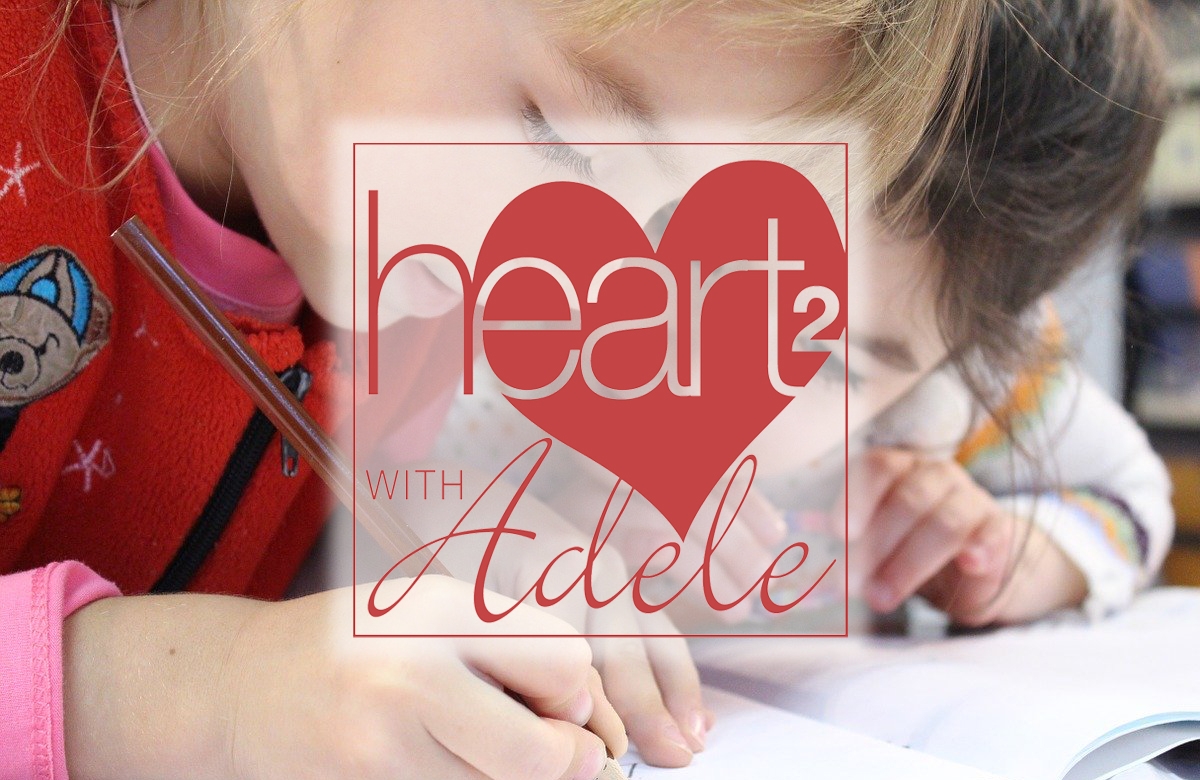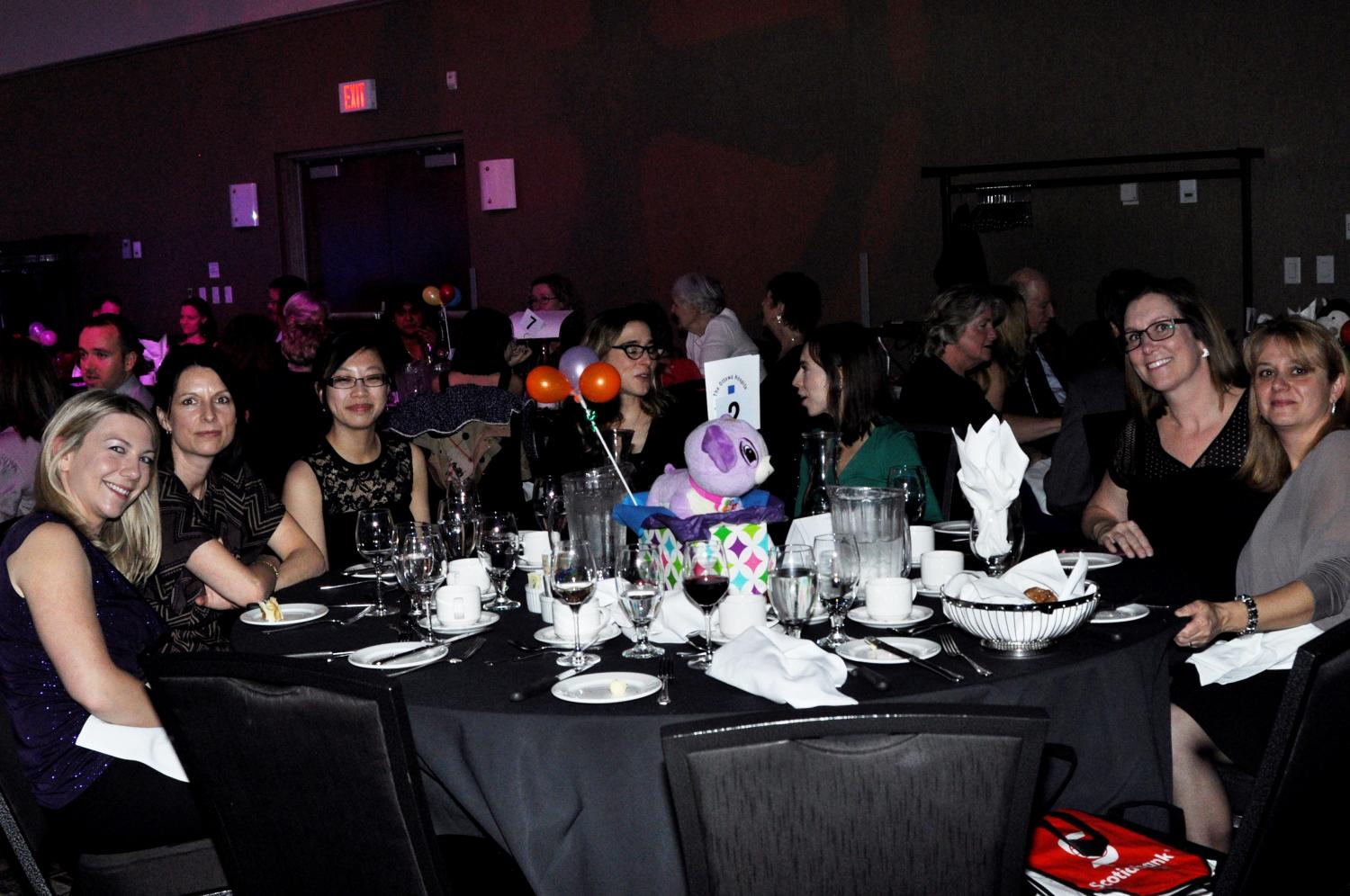
Heart to Heart: The challenge of raising a gifted child
Question:
Dear Adele,
Our son is in primary school in the local school system. We think he might be gifted, and his teachers have suggested we have him tested. I’m wondering what experience you have with gifted children and what ideas you have for me about raising him. We want to offer our son the best opportunity to develop his natural talents but are uncertain about the options for gifted education. Can you help us?
Blessed with a Gifted Child
Answer
Dear Blessed with a Gifted Child,
I used to tell my adoptive applicants who would indicate their comfort with adopting children of different profiles and included ‘Gifted child,’
“Be careful what you wish for.”
They would look at me in complete disbelief and utter confusion, often wondering what in Heaven’s name I could possibly be talking about.
“Surely everyone wants to adopt a gifted child?”, they would say, and they truly believed that raising a gifted child would be easy and most rewarding. That was a common thought. Unfortunately, it was a common, mistaken, underinformed, rather disconcerting thought to me. Raising a gifted child is anything but easy, and fraught with a whole set of unique challenges.
I love to hear from parents who realize the great gift a child in their life has been. Many are denied the opportunity to be parents. Many fail to realize the privilege, the joy, and the responsibility that, that blessing demands of them. As a former teacher and former social worker, I saw many children, and read a ton of books about children who were labelled gifted. Educators, psychologists and parents have tried for centuries, to figure out how to measure that unmeasurable. Exactly which child, born to which parents, raised in which way, will actually produce a human adult that makes a significant difference in the world has been answered in many ways, by many brilliant minds. But in truth, no one actually has the definitive answer.
So, here is my answer based on over half a century working with children, working among many professionals who would probably have qualified themselves as gifted in our school system, and raising two adopted children who met the criteria of giftedness in the Ottawa Carleton District School Board when they were young children.
I will start with a little anecdote from my teaching experience. For eight years I taught English to French immersion to grades 2, 3, and 4. For many of those years I was involved in the gifted screening of the children in grade 3. At that time, the screening involved psychological assessment, peer evaluation, teacher evaluation, performance reviews, and parental evaluation among other things. One year, 21 parental evaluation forms were sent home to the parents of 21 children, in a third grade with 21 students. The parents were asked to report on the development of their child on several variables and at the end of the questionnaire, provide their own estimation of whether their child met the criteria for giftedness, as defined by the school board process.
20 forms were returned indicating that as far as the parents were concerned, the children were indeed gifted, as defined by the school board standards. One form was returned indicating that the child did not likely meet the criteria. In fact, only one child out of the 21 met the Board’s criteria. The one child that met the Board’s criteria was the name on the form returned by the parents who thought their child did not meet the criteria.
What I hope you will take away from this story is what I did. Every child raised in a home where parents care about him or her, love him or him to the death, and want the very best for that little human, sees their child through rose coloured glasses, through a particular lens that only they have, or from a branch on the tree where others do not sit. Most loving parents thrill at their babies first smile, the moment their child takes his first step, and recall or record even, the very moment their child says his first word.
Watching the development of a human baby is an astonishing miracle happening right before our eyes. We all stand in awe of it, and when we witness our very own little progeny developing as nature intended, it amazes us. Parents love to tell others that their child was walking even six or seven days before the average and will boast about how incredibly brilliant it is. They relish in telling others that their child put two words together, one month before the norm their doctor told them about. They can hardly wait to tell others that their child was toilet trained at 22 months when most other children do not accomplish that task until 24 to 30 months. Parents get so impressed with their own child accomplishing anything a bit ahead of accepted norms, are so blind to the fact that the developmental stages of children follow a certain pattern generally, with an incredible range within it, and that being slightly ahead or even quite a bit ahead of standard norms, in accomplishing those developmental tasks does not necessarily mean that the child is extraordinary in any way. It does not guarantee at all, that the child will one day make a difference in the world, as a gifted person.
I like to talk to parents about the fact that every human person is unique, with a unique eye print, with a unique fingerprint, and with a unique set of characteristics with which he or she can serve the world during his or her lifetime. No human infant is like their child and there will never be another one like their child. The chances of his conception and existence on the planet are one in 10, to the power of 2, 685, 000, according to Dina Spector, in an article entitled, “The odds of you being alive are incredibly small,” published in Business Insider, on June 11, 2012.
The role of competent parents, is to help their offspring develop his or her unique characteristics, provide him or her with opportunities where he can find a passion for developing some of them, and help focus him into an adult life where he will use those unique, highly developed talents to serve others during his lifetime. Those talents may be clustered in the cognitive realm, in the athletic realm, in the social realm, or in the creative expression realm, and in some individuals are seen globally in all of them. Now this idea of serving the world with one’s talents, applies to every single child no matter what characteristics he or she comes packaged with. Consider the following few examples:
Canada has a child prodigy in music. She is likely homeschooled. At age 8, after one year of piano training, she attended the University of Vienna, and played classical piano pieces written by the likes of Sergei Rachmaninoff well enough to win International adult piano concert competitions. Few would deny she is a gifted child. It shows on her without any testing at all. You meet her, you see her, and she performs with passion and off the wall, world level adult skill. It is completely obvious to any human knowing her, that from any branch on the tree, Sonny Ritter is a gifted human.
Thierry Montpetit was an ordinary 9th grade student in Montréal. He told me recently, that his Internet was down one day during that year, and he decided to spend some time with his high school music teacher, listening to her playing the piano. He enjoyed the sound, and thought he would give it a try. The fire was lit, the flames flared up, and Thierry found his passion. At age 14 he started to practice the piano. At first, one hour a day, quickly moving on to two hours a day, three hours a day and then eight hours a day. He was admitted to the University of Montréal a few years later, and practiced even more. He was driven to be the best he could be, at something he loved. He completed a doctorate in piano performance in 2019. He has played in Canada, the USA, Japan and France and has been a finalist in international competitions in Tokyo, and New York City. He has won many awards, including the first prize at the 2019 Festival de musique du Royaume, among many others. For a long time, growing up as a child, Thierry appeared to fall within the average range. But when he found his passion for music, he was driven to the highest caliber performance in the world. No one told him to do it. No one forced him to do it. Thierry wanted to do it and he did. Who can deny that Thierry Mont Petit is a gifted individual?
A lifetime friend of mine was a high school chemistry teacher, with the Carleton Board of Education. In my opinion, she was a highly gifted person for sure. But most people looking in from the outside, probably would say she fell within the average range of teachers with a university undergraduate degree in science, a teacher’s diploma, and a successful career teaching chemistry, in an Ottawa high School. My friend and her husband decided to have a child together, and she gave birth to a darling healthy son. They were wonderful parents, and did everything they could to bring out the special characteristics of their boy. My friend recently told me, that her boy walked, talked, and developed as a preschooler within the normal range. However, when he went to the regular public school for kindergarten, and then into first grade, he did not adjust well. He was noticeably unhappy with the pace of learning, and experienced many social challenges. Concerned parents, requested he be tested, as parents often do.
Well, lo and behold, their boy tested at an extremely high level of giftedness, by the Board standards. He immediately qualified for a congregated gifted class program for such children, offered at the time by the Ottawa Board of Education. My friend says this was the best possible thing that could have happened to her son because he finally found other children like himself who learned quickly and thirsted for new knowledge. He soared through his elementary and high school education in congregated gifted classes, graduating at the top of the gifted education program at his high school, winning all kinds of awards. This young man could have chosen almost any career he wanted, because he was outstanding at everything. He decided to attend an elite university in the United States for an undergraduate degree where he excelled, and went on to attain a PhD in Economics at MIT. Right out of there, he was offered a position, at a top university in the USA. My friend was happy to report to me recently, that her son is now happily married to a lovely university professor, and that the couple are ecstatic to have just had their second child. My friend and her husband could not be happier with how their boy’s life has turned out. And who could deny this boy was a gifted child and is a gifted person?
But there are many famous people whom I would call extremely gifted because of the contribution they have made to the world with their talents, as adults, which have made the world a better place. All kinds of them never appeared to be gifted in school and were never considered anything special by their families, friends or communities. Many didn’t even finish high school or dropped out of the college programs. Many actually hated school, got lousy grades, and were not even considered talented by evaluators. John Steinbeck, celebrated world-class author and Pulitzer Prize winner, hated every day he went, dropping out in high school. Steve Jobs, billionaire chief executive officer and cofounder of Apple Inc. dropped out of college after one year. Whoopi Goldberg and Ryan Gosling, absolute superstars in the entertainment field did not complete high school. Alanis Morrissette did not make the cut for her own high school talent contest. My own adopted son was assessed by an Ontario Children’s Aid Society when he was in foster care, in 1985, as low average. was retested after his adoption at age five by the Ottawa Carleton District School Board. A highly gifted child, his IQ score had only been exceeded by four children in the history of the Barrhaven Public School.
So, here’s what I think about giftedness.
Forget labels. They exist because of man’s need to try to describe in words concepts or ideas which are not concrete or measurable accurately like 16 ounces of butter on a scale. There are many different definitions of giftedness and the school board where your child attends his classes will have a specific definition. It provides the school board with a way to slot children into a category which will qualify them for certain programs and perks in the educational system. In our area, a child scoring in the top 2 per cent of the population on a recognized psychological intelligence test is often deemed gifted. However, all kinds of truly gifted people never make the cut but go on to make significant contributions to the world in adulthood.
I suggest you provide your child, no matter how anyone else assesses him or labels him, with the priceless invisible cloak that will protect him, warm him, support and sustain him all his life. It is the invisible cloak that will free him and empower him to do anything he wants in life. It is the invisible cloak of self-confidence and opportunity that his parents, family, peers, teachers and adults in his childhood experiences, weave for him, while he is growing up, each and every day.
Bone up on self-esteem, and how to foster it. Make sure your child has a ton of it. Help him understand that if his uniqueness is suggesting that he might develop into a mighty red maple shade tree, that you will do everything you can as his parent, and that he should do everything he can himself, to be the best possible mighty red maple shade tree, in Canada. If his uniqueness is suggesting that he is developing into a hearty, frost resistant, red rosebush, ensure that you do everything you can and encourage him to do everything he can, to be the most beautiful, healthy, fragrant, hearty red rosebush in your backyard garden. If his uniqueness is suggesting that he is a hybrid of the rarest kind of flower on the planet, ensure him that you will do everything you can and that he should do everything he can, to help the world learn more about how such precious flowers come into being and how we might use them to best advantage, on our planet.
Help your child be confident in who he is and what talents he has to share with the world during his journey through it. Help him to understand that he has a responsibility as a human being with talents, to use them to help others, and to improve the human condition. Give him a ton of opportunities to explore things he might be interested in, rather than focus him on one or two as a young child. Play to his strengths and ensure he is involved in all kinds of groups, all kinds of activities, all kinds of learning opportunities even those that he might not select right off the top by himself. Keep him very busy, keep him involved, keep him active, and don’t let him waste his time doing things that don’t advance his mind, his skills, his interests and his opportunities. A plethora of diverse experiences will help him discover a passion, that can lead to him to contribute his best self to the world. Provide discipline, demand integrity and model kindness to all. Make sure he volunteers his talents to others often, and always has an interesting book under his arm.
May you enjoy the gift your child is to you as a parent, and to the universe of which we are part. In the end you can only provide your child with canvases and brushes. What work of art or masterpiece he creates with them, is up to each artist. Be satisfied if in adulthood, your son can be called a good man, who knows how to love and be loved, and can support himself in independence.
Some gifted sources of wisdom, conclude my answer to you, Blessed with a Gifted Child:
“Service to others is the rent you pay for your room, here on earth.” Mohmmad Ali
“To whom much is given much will be required.” Luke 12:48
“Surround yourself with the dreamers and the doers, the believers and the thinkers, but most of all surround yourself with those who see the greatness within you, even when you don’t see it yourself.” Edmund Lee
Sincerely, Adele
I'm looking forward to your questions! Email me at maryadeleblair@gmail.com and please put Heart to Heart in the subject line. Note that all columns will remain anonymous.









